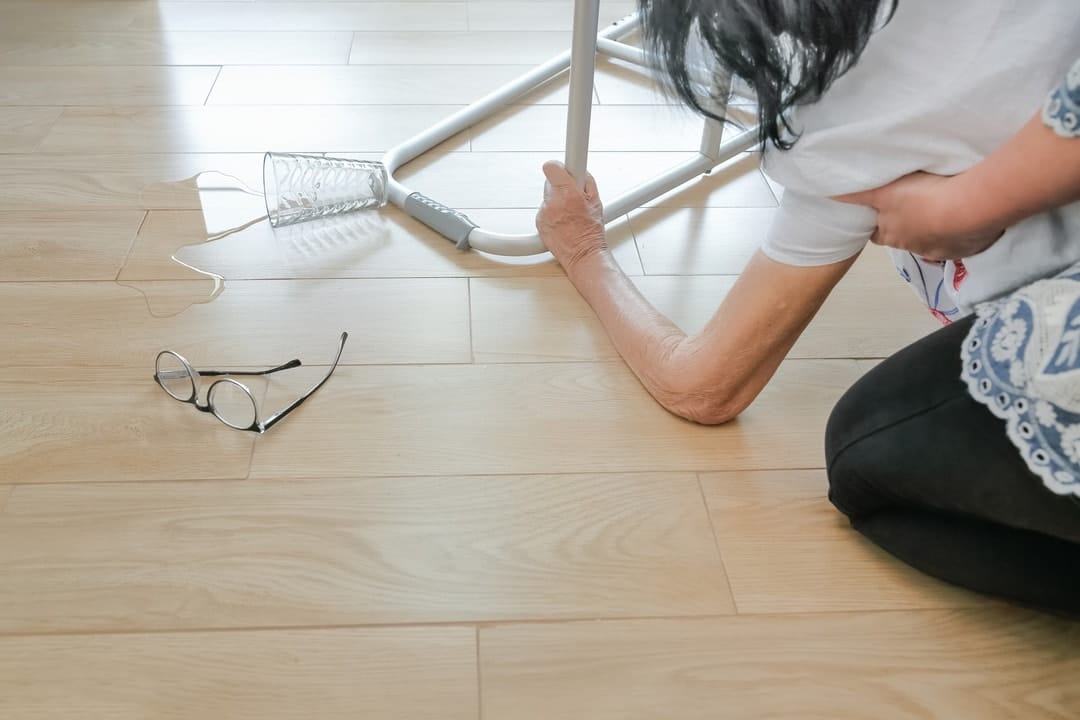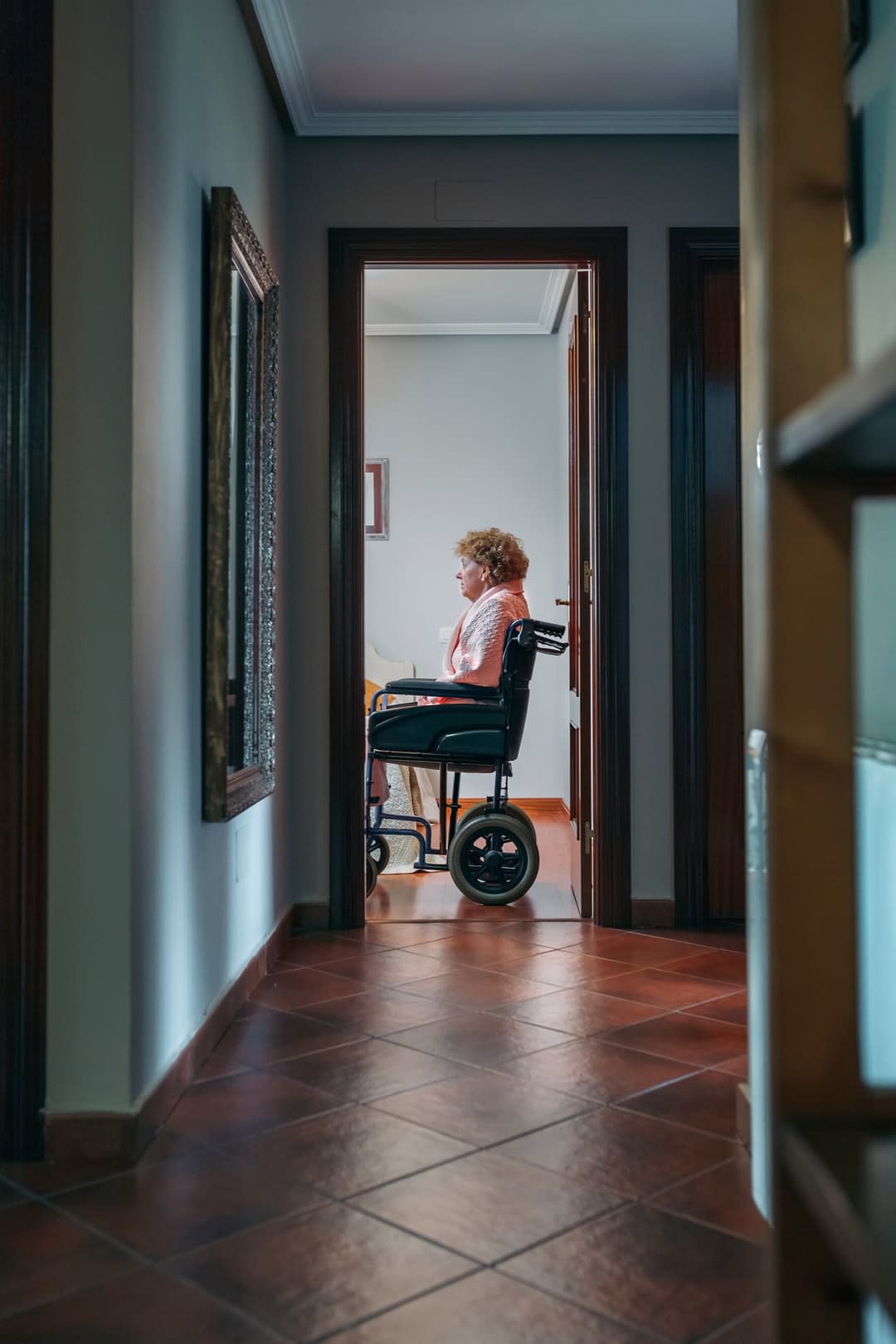
Leah* experienced domestic violence and abuse from her husband of three years. Leah’s husband took out multiple credit cards in her name and accrued almost $50,000 in debts. Leah and her husband separated, and Leah subsequently went bankrupt. Almost 10 years on, Leah is still struggling to get her financial life back on track.
Sarah* experienced violent attacks and intimidation from neighbours and others in her rural community over many years. She was beaten unconscious by neighbours on her own property. The neighbours called the police and accused Sarah of being the primary aggressor. Sarah had a long history with the police from whom she had sought help many times over years of harassment. When the police attended the hospital, they were overheard by staff describing Sarah as a "pain in the backside".
Regrettably, stories of such violence aren't uncommon for women with disability. Researchers from the Monash Gender and Family Violence Prevention Centre (MGFVPC) heard numerous and diverse accounts of violence in the course of the ANROWS-funded project, Women, disability and violence: Barriers To Accessing Justice, which was completed in 2018.
Conducted in collaboration with disability rights and advocacy organisation People With Disability Australia (PWDA), the project examined the contexts of intimate, family and community violence in the lives of 36 women from urban and regional locations in Victoria and New South Wales, and detailed their experiences of seeking justice safety and security following disclosures of violence.
The research unearthed a wealth of information about the particular and sustained challenges women with disability face in achieving everyday safety and security. The final report provides evidence of the diverse and complex forms of abuse women with disability face, which is particularly significant for ongoing research. Subsequent work conducted by the MGFVPC has focused on the stories of these women in an effort to raise awareness of the multiple ways in which they encounter intimate, family and community violence.
Economic abuse in the context of disability
Economic abuse of women with disability, such as that experienced by Leah*, frequently involves women being denied access to their own money, being provided an "allowance" by their abusive partners, or having their activities surveyed on digital devices.
However, economic abuse can also manifest in numerous other disability-specific ways, such as finances for medication being misspent, and preventing access to communication or mobility aids, contraception and accessible housing. Abusers – importantly, who may also be carers – may threaten women with institutionalisation, withhold essential care, and threaten women’s autonomy, dignity and agency. Disability-specific economic abuse may also be perpetrated through abuses of arrangements such as powers of attorney and financial trustee.
The experience of a women we'll call Wendy further highlights the potential complexity of economic abuse for women with disability. Her husband of many years subjected her to violence and control; he was also her carer and received a carer’s benefit from the government.
Wendy told us: "I was so sick. He was on carer’s support. Me and a girlfriend, who was also really sick, we used to say, 'Mate, it should be called abuser’s support pension'."
In a recent project funded by the Victorian Women’s Trust, Professor JaneMaree Maher, Dr Jasmine McGowan and Kate Thomas partnered with disability advocate Tricia Malowney AO to develop a toolkit to assist women with disability identify economic abuse in their lives. The toolkit is a conversational aid for women with disability and a support person or friend.
The team benefited from the expert input of women with disability in a series of workshops and consultations in the process of developing and testing the toolkit. It begins with a series of general questions about the woman’s financial arrangements. If the woman’s answers suggest there's financial abuse, there are options for referral and further support.
The lack of accessible resources to assist with the identification of abuse and the support of women to move away from violence was a key finding of the ANROWS project, and the development of the economic abuse toolkit is a direct response to this call for resources.

The toolkit has been developed in Auslan, Plain English and Easy English using images designed to help women talk about economic abuse they may be experiencing, either on their own or with their support worker or friend. The toolkit is available online, and has recently been developed into a booklet that will be distributed to locations and services where women can readily access it.
Targeted violence perpetrated against women with disability
In a recent article, Dr Jasmine McGowan and Dr Karla Elliott (University of Melbourne) examined targeted violence against women with disability perpetrated by neighbours and community members. The article focused on the stories of five participants from the Women, Disability and Violence project, who spoke about physical, psychological and emotional violence perpetrated by local community members.
The women emphasised the severity of the violence and intimidation they experienced in this context, and spoke in detail about how their sense of safety and security was undermined through interactions with distrustful and indifferent police.
Drs McGowan and Elliott suggest that the lack of awareness about this type of abuse is compounded by gendered and disablist prejudice to "create a climate of impunity in which women are abused and their access to justice inhibited".
Contributing to this are social norms that construe certain types of persons and victims as inherently vulnerable rather than as targets of hatred or derision. The "hatred/vulnerability dichotomy", as it's referred to in disability scholarship (Mason-Bish 2016), can work to inform service responses where "vulnerable adults" reporting violent crime may be pushed towards social care and health services rather than provided with criminal justice responses.
Targeted violence perpetrated by neighbours against women with disability, as well as disability-specific forms of economic abuse, represent a lacuna in community understandings of disability and family violence.
Sarah talked about her ongoing experience of targeted violence and protracted engagement with law enforcement. She told us she had been encouraged to undertake counselling, but that she thought such a response was "immoral" for the reason that it places the responsibility of change "onto the victim instead of the community".
Sarah commented: "What is happening is unacceptable ... I'm not going to make it easy to just let the system and the community say, ‘Oh well we'll send her to counselling’. It's outrageous."
Targeted violence perpetrated by neighbours against women with disability, as well as disability-specific forms of economic abuse, represent a lacuna in community understandings of disability and family violence – one Monash researchers hope to mitigate through awareness-raising.
You can access the full ANROWS Horizons report ,Women, Disability and Violence: Barriers To Accessing Justice, and the economic abuse tool on the Monash Gender and Family Violence Prevention Centre website.





